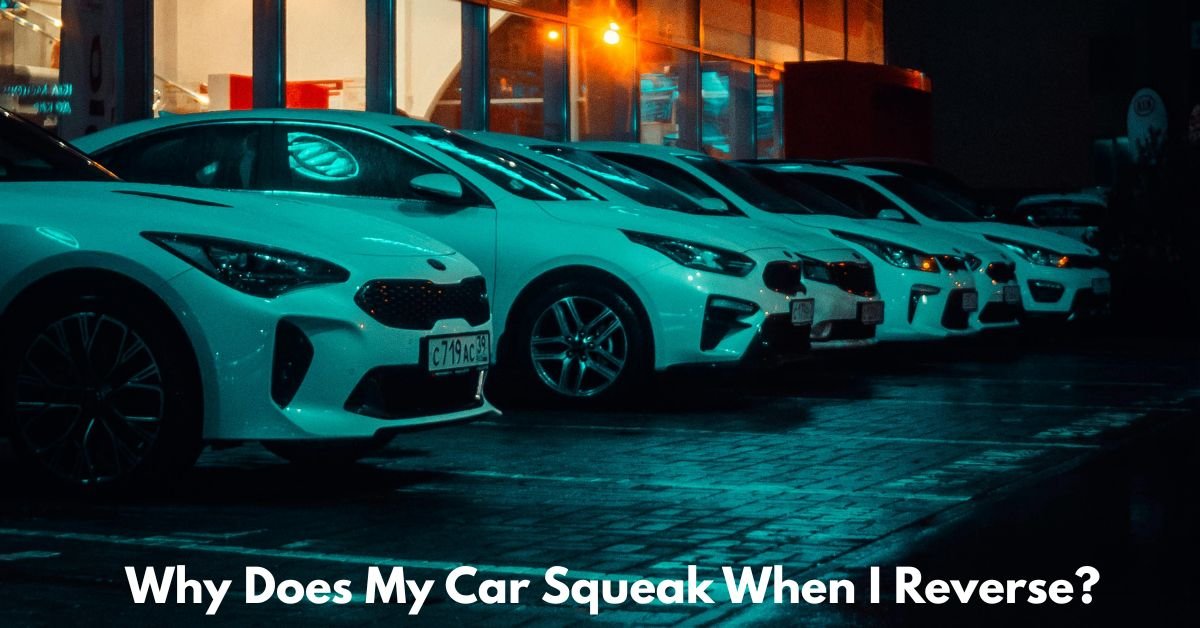If you’ve ever backed out of a driveway or parking spot and noticed a high-pitched squeak coming from your car, you’re not alone. Many drivers experience this annoying sound when reversing, and while it may not always signal something serious, it’s definitely not something you should ignore. In this post, we’ll dive into the common reasons your car might squeak when reversing—and what you can do about it.
Why Does My Car Squeak When I Reverse?
1. Worn Brake Pads
Worn brake pads are among the most frequent reasons why brakes screech when reversing. Brake pads have a small metal tab called a “wear indicator” that’s designed to produce a squealing noise when the pads are getting too thin. This is a built-in warning system to alert you before the brake pads wear down completely.
Even if your car doesn’t squeak going forward, it might still make noise in reverse due to how the brake components shift slightly in that direction. If the squeak is accompanied by reduced braking performance or a grinding sound, it’s definitely time to replace your brake pads.
2. Moisture or Rust
Moisture from rain, snow, or even morning dew can cause a thin layer of rust to form on your brake rotors. If your car has been sitting for a long time, this is very typical. When you reverse (or even drive forward), the pads scrape the rust off, often resulting in a squeaking or grinding sound. Typically, this noise will go away after a few stops once the rust has been worn off.
However, if the squeak persists, it could indicate more serious corrosion on your brake components that may require attention.
3. Glazed Brake Pads or Rotors
When brake pads or rotors overheat—often due to excessive braking or using poor-quality components—they can become glazed. This means their surfaces get smooth and shiny, reducing their friction and causing squeaking. While glazed brakes can squeak in any direction, some drivers report the issue being more noticeable when reversing slowly.
If your brakes feel less responsive or “grabby,” in addition to the noise, it’s a good idea to have a mechanic inspect them.
4. Dust and Debris
Brake systems are exposed to the elements, so it’s not unusual for dust, dirt, or even small rocks to get lodged in them. When reversing, your brakes or suspension components may slightly shift, allowing the debris to rub in a way that causes a squeak. This is usually a temporary problem, but if the noise continues, it’s wise to have the area cleaned or inspected.
Must Read: Why Does My Car Smell Like Antifreeze?

5. Suspension or Bushing Issues
While brakes are the most common culprit, the squeak might also be coming from your suspension. Worn bushings, ball joints, or other components can squeak when the vehicle shifts weight—like when you’re backing up. These parts can dry out or crack with age, especially in vehicles that are frequently exposed to harsh weather or rough roads.
You may notice the squeak when going over bumps or turning as well. In that case, it’s probably not your brakes—it’s time for a suspension check.
6. Brake Caliper Movement
Sometimes, the calipers that hold your brake pads can move slightly when you reverse, especially if the mounting hardware is worn or loose. This can cause a squeak or even a clunking noise. While it’s not always dangerous right away, ignoring it can lead to uneven brake wear or more expensive repairs down the line.
Final Thoughts
A squeaking noise when reversing is often a symptom of something minor—but it’s always worth paying attention to. From worn-out brake pads to suspension issues, there are several potential causes. Your best bet? Don’t wait. A quick inspection by a qualified mechanic can help you identify the issue early and avoid more expensive repairs later on.
If you’re a DIYer, make sure you’re comfortable working with brake components—or consider having a trusted shop take a look. Your safety (and your sanity) are worth it.
